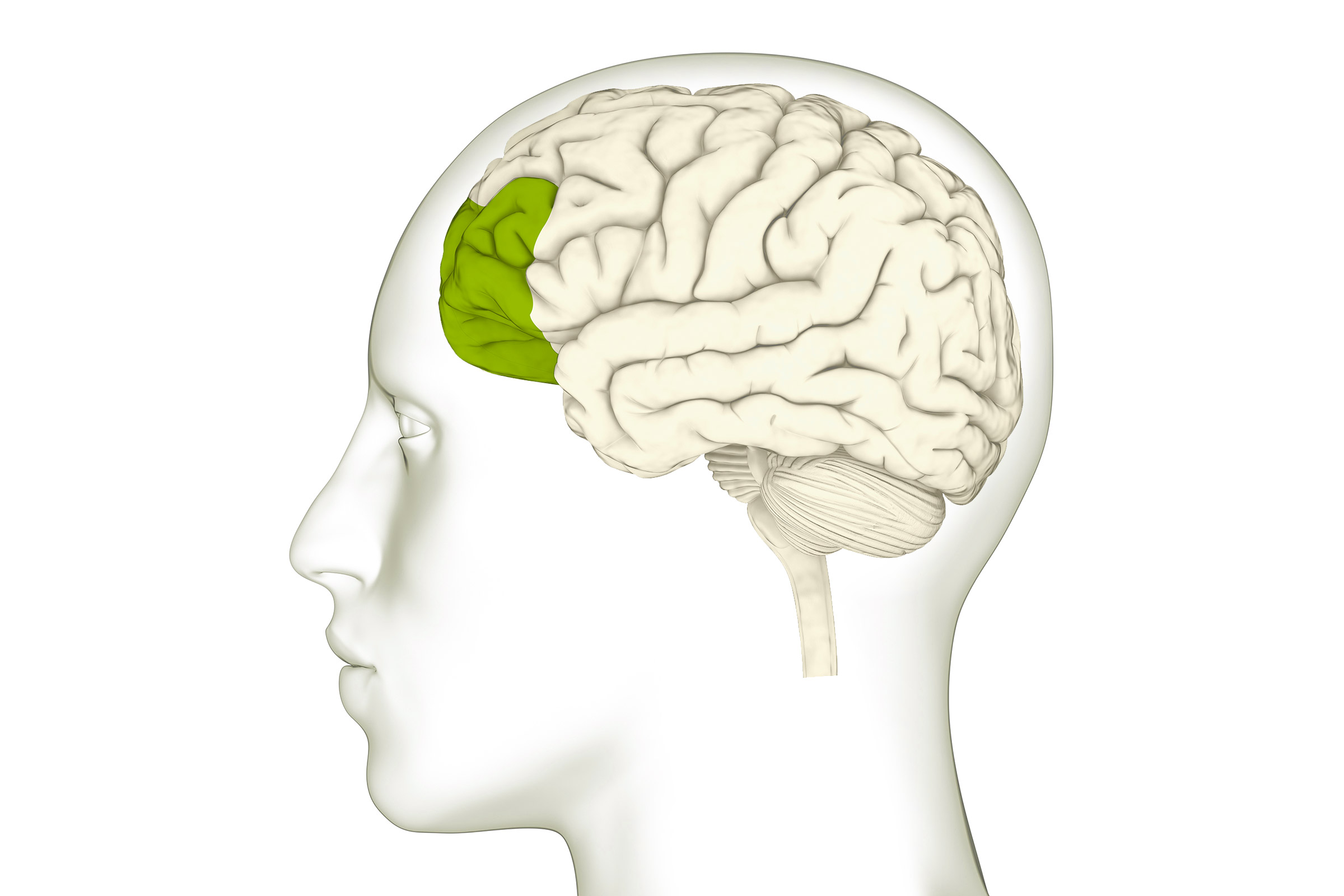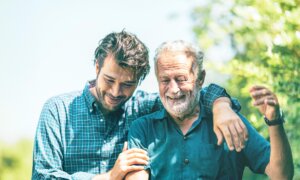Resilient people have high activity in brain regions related to good emotional regulation, indicating a possible cause behind the ability to stay calm, thoughtful, and kind.
Until recently, resilience was thought of as related to psychological traits and environmental or social support. Growing evidence of the neurobiological impact on resilience can complement psychological counseling-style skills that one can learn to stay strong and kind.
Research shows that specific brain regions are active in both kind and resilient people and that there are ways you can actually train your brain to become resilient.
Brain Connections for Kind Resilience
Emotion regulation is the ability to change our emotional expression or experience. Strengthening this skill is the goal of many modern therapeutic interventions for mental health.
The idea that we can change our emotions (rather than just passively experience them) goes back thousands of years to Plato’s teachings in about 380 B.C. However, Plato thought that emotions should be controlled with reason, not entirely eliminated. He believed that emotional intelligence was essential for a balanced, content life.
Healthy resilience is defined as adapting well in the face of adversity. These adaptive changes shape the functioning of the brain circuits that regulate emotional reactivity. How we regulate our emotions affects our social behaviors.
One positive emotion that builds positive affect is compassion. Compassion denotes a feeling of warmth and benevolence linked to the prosocial motivation to help others when confronted with their suffering.
Activated Brain Regions
The two most active regions in the brains of kind-resilient people are the anterior cingulate cortex (ACC) and prefrontal cortex (PFC), according to a
study published in Nature Mental Health.
The ACC lies in a unique position in the brain, as it connects to both the emotion-centered limbic system and the more evolved, higher-cognitive region, the PFC.
These brain regions play a crucial role in controlling the “fight-or-flight” response, preventing it from becoming overwhelming and allowing for more adaptive responses to stress. These different areas of the brain work together well or communicate with each other in resilient people.
The ACC helps you stay calm and in control of regulating your emotions. This region would look like it is in command when you’re trying to help someone who is upset, and no matter how harsh they are toward you, you don’t react. This part of the brain, alongside the PFC, works best when you’ve eaten and slept well, so rational decision-making and complex mental tasks become easier to handle.
The PFC is most active when considering long-term consequences and planning for our and others’ well-being. It helps us adapt to new situations and keep impulse control in check.
How Brain Activity Can Drive Positive Emotional Responses
Using magnetic resonance imaging (MRI), the authors of the Nature Mental Health study examined the brains of participants who scored high on a resilience scale. The brain imaging data revealed that highly resilient individuals showed greater activity in regions associated with emotional regulation and cognitive functioning.
Using the Emotional Brakes
Researchers observed specific patterns of brain activity that distinguished highly resilient individuals from less resilient ones.
People with higher resilience tended to have a better grasp of their emotional reactions, which helped them manage stressful situations more effectively.
These people also had more activity in the regions regulating emotional responses and better cognition (rational thinking or cognitive flexibility). Their “brakes” worked well even under pressure. Often, they could stay calm and respond thoughtfully and kindly, which made both them and the people with whom they were communicating feel more positive.
These highly resilient individuals could also prevent heightened stress or prolonged emotional responses better than the less resilient people in the study.
How the Brain Regulates Emotions
The same brain regions activated when people regained control of an emotional response, according to another
study published in Nature Neuroscience in March.
Using two datasets of MRI images, Dartmouth and University of Pittsburgh researchers identified the anterior PFC as one of the brain regions uniquely more active when emotions were regulated, compared with when emotions were generated, or “out of control.”
The findings of this study suggest that the more individuals can activate the key brain regions involved in emotional regulation, the more capable they will be of experiencing something negative without letting it affect them personally.
“As a former biomedical engineer, it was exciting to identify some brain regions that are purely unique to regulating emotions,” Ke Bo, a postdoctoral researcher in the Cognitive and Affective Neuroscience Lab at Dartmouth and lead author, said in a statement. “Our results provide new insight into how emotion regulation works by identifying targets that could have clinical applications.”
A greater capacity for emotional regulation has thus been linked to stress resilience on a neurobiological level. Resilience to adversity and empathy (or kindness) are core components of emotional intelligence. According to the study, mental rigidity makes us less resilient and less kind.
Psychological Traits of Resilient Individuals
For people to stay kind when they face challenges requires extraordinary strength. Research, such as the Nature Mental Health study, has shown that highly resilient people share other such characteristics, including the following:
- They are kind, calm, nonjudgmental, and mindful.
- They have high emotional awareness and lower neuroticism.
- They experience less perceived stress, anxiety, and depression.
- They have better cognitive functioning (e.g., memory and attention).
Building Kind Resilience: Evidence-Based Approaches
Empowering yourself with a feeling of control over your own situation can help reduce chronic stress and give you the confidence to regulate your emotional responses. The following are different approaches from psychological, physiological, spiritual, and social perspectives.
Psychological Strategies
- Emotional Regulation Techniques: To feel in control, you must feel psychologically safe. Many relaxation techniques, such as meditation, can promote a feeling of safety and an ability to handle stress and build mental resilience. To learn more about the role that the nervous system plays in feelings of safety, check out this article.
- Communication Skills Development: Learn some basic communication skills and practice, practice, practice.
- Practice and Habit Formation: I prefer the phrase “practice makes progress” to “practice makes perfect.” When you practice being kind, you will see the results in real-time. Like a well-developed muscle, the stronger these brain regions become, the faster they activate when you need to restrain yourself and act resiliently. For example, the more you practice cooking, the better your chances of becoming a good cook.
Physiological Support
- Role of Nutrition: What you eat influences your brain cells and can provide stronger communication and mental flexibility in the ACC and PFC regions. Nutritious food fuels those brain cells and feeds resilience.
- Brain-Gut Connection: Having an intact gut barrier can also support those brain regions and help you be stronger and kinder more often.
- Physical Practices: A flexible body and mind go hand in hand. Stay physically active within your ability. Lifting weights, walking, or cycling often can give you a sense of physical accomplishment that boosts you in other areas.
Social and Spiritual Components
- Community Support: Being around a group of caring, like-minded individuals can give you strength.
- Faith, Gratitude, and Spiritual Practices: Spiritual faith and daily gratitude practices have historically been part of some of the most potent human survival methods to provide hope during challenging times.
Through authentic, lived experience, these strategies can reinforce positive effects on your nervous system and help you build more confidence.
People who believe that they may benefit from personalized care while learning lifestyle skills for resilience should consult a licensed health or mental health professional.













